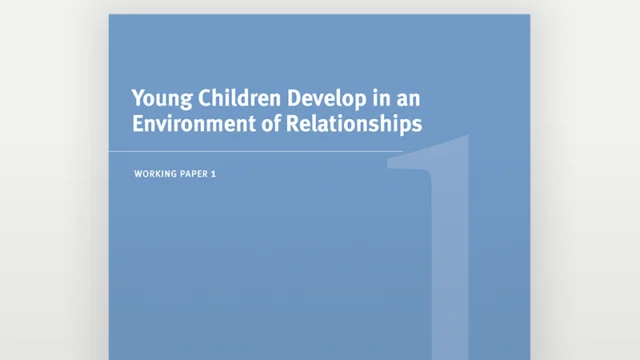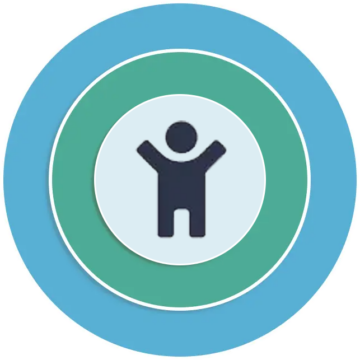Young Children Develop in an Environment of Relationships

An “environment of relationships” is crucial for the development of a child’s brain architecture, which lays the foundation for later outcomes such as academic performance, mental health, and interpersonal skills. However, many of our nation’s policies fail to consider the importance of adult-child relationships for child well-being.
Growth-promoting relationships are based on the child’s continuous give-and-take (“serve and return” interaction) with a human partner who provides what nothing else in the world can offer—experiences that are individualized to the child’s unique personality style; that build on his or her own interests, capabilities, and initiative; that shape the child’s self-awareness; and that stimulate the growth of his or her heart and mind.
This working paper from the National Scientific Council on the Developing Child explains how these relationships shape child development and identifies ways to strengthen policies that affect those relationships in the early childhood years.
Suggested citation: National Scientific Council on the Developing Child (2004). Young Children Develop in an Environment of Relationships: Working Paper No. 1. Retrieved from www.developingchild.harvard.edu.
 Developmental Environments
Developmental Environments